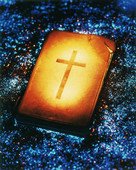 Sasha Cohen won the silver.
Sasha Cohen won the silver.I know that, by the way.
Want to know how I know that? Because there are two ladies in my household who watch ice skating. Since it's the Olympic season, we have risen and fallen over the Michelle Kwan saga, not to mention the trials of the hopefuls who have attempted to win the gold.
Again... I know all of this.
I also know what a "short program" is, not to mention a "long program." One is short... and the other is long.
Another thing I know is how skaters are judged. It's more than flips and spins, but everything down to the precision of how they skate is counted.
Once again... this is stuff I know.
 Keep in mind, I don't watch ice skating. It just happens to be on TV when I'm working on the laptop and so I have learned a lot simply through proximity. Without looking, I could tell if a voice I was hearing was Scott Hamilton's or not, even though I've never seen the man do anything but stand behind a microphone. I heard he used to skate... and that he got sick, but then got better.
Keep in mind, I don't watch ice skating. It just happens to be on TV when I'm working on the laptop and so I have learned a lot simply through proximity. Without looking, I could tell if a voice I was hearing was Scott Hamilton's or not, even though I've never seen the man do anything but stand behind a microphone. I heard he used to skate... and that he got sick, but then got better.The other night I mentioned a fact to my wife about skater Sarah Hughes. Turns out I not only was right but I also blew her mind that I knew this. And that blew my mind.
This is freakishly weird to me. I know many things about something that I know nothing about. I've never sat down to study skating, nor have I consciously chosen to watch it as entertainment. I've never even been to an Ice Capade... or any other "Capade," for that matter.
So how do I know this stuff?
 The Scriptures talk about meditating on God's Word. Which is a bit weird that the Bible talks about the Bible, but it does... it's in there. Most of us in the contemporary Christian bubble have interpreted this to mean that we need to have a "quiet time" of some sort, which I think is a pretty good interpretation.
The Scriptures talk about meditating on God's Word. Which is a bit weird that the Bible talks about the Bible, but it does... it's in there. Most of us in the contemporary Christian bubble have interpreted this to mean that we need to have a "quiet time" of some sort, which I think is a pretty good interpretation.But what about the other interpretations of how this all fleshes out?
What about the fact that people like King David didn't have the Scriptures as we do? Or Jacob? Or Abraham? Or King Saul? If they didn't have a Bible to read, what did they do for a "quiet time?"
And was it quiet? The practice of the early church was to sit in community and read the Scriptures together. Along the way of moving into a self-centered society, I wonder if we interpreted Bible reading to be a solitary activity when it originally was intended to be a community one? After all, there would be less danger of misinterpretation if the accountability of the community was in place.
All of these people - often cited in the "heroes of the faith chapter" of Hebrews 11 - simply soaked up God by proximity. Some of them had audible conversations with the Lord, many relied on prophets to tell them what to do, while others simply communed with each other in the name of Jesus. By skating around the Truth, they became some of the major sub-characters in God's great Story.
I'm not denying that I would know more about things if I concentrated my time on them. And the Bible does say that we will be transformed by the renewing of our minds. Yet what if we could practice God's presence all day and literally let everything from time in the Bible to the way we served our boss become a spiritual thing?
I guess what I'm really wondering is what does the acclamation of life-changing knowledge and wisdom look like? Is it about staring straight into the Scriptures? Or is it more about hanging out in the room with the Word in action? Maybe neither? Maybe both?
And if you choose one over the other, how do you feel about people who don't pursue growing in the Scriptures as you do? Is there a "right way" to abide with the Lord?
That's a meditation worth skating around in a bit...
Blessed is the man who does not walk in the counsel of the wicked or stand in the way of sinners or sit in the seat of mockers. But his delight is in the law of the LORD, and on his law he meditates day and night. He is like a tree planted by streams of water, which yields its fruit in season and whose leaf does not wither. Whatever he does prospers. (Psalm 1:1-3)

1 comment:
Good post....Tony
Post a Comment